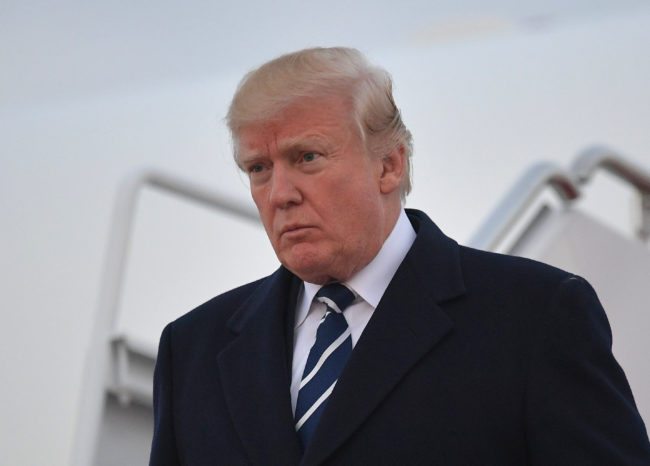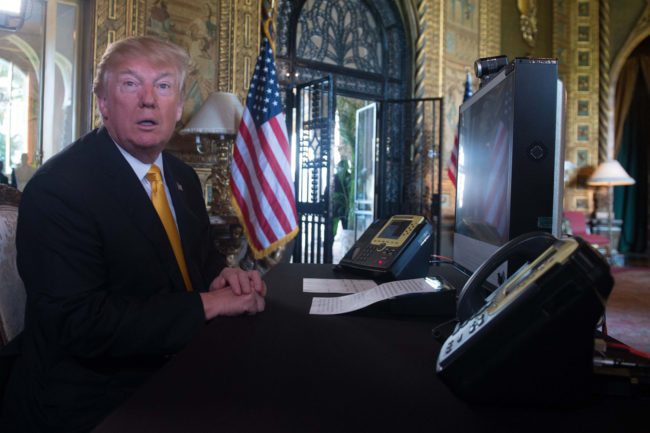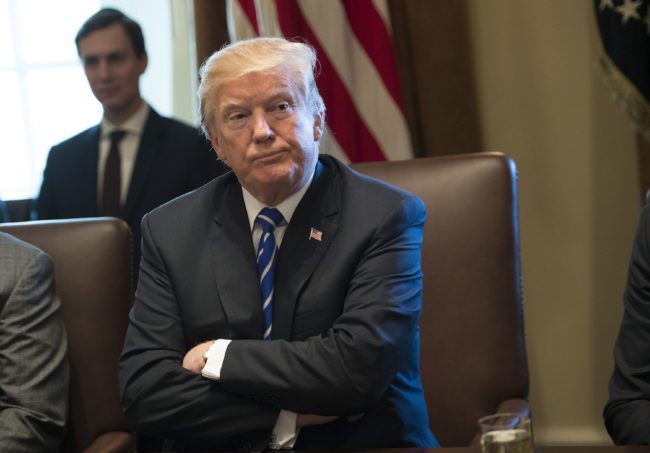US military ‘preparing to accept transgender troops’ after court ruling on Trump ban

The Pentagon is “taking steps” to accept transgender troops from January, amid legal battles over Trump’s touted ban.
Donald Trump announced on Twitter earlier this year that all transgender servicepeople would be banned from the US armed forces, claiming they were a burden on the military.
However, the ban was quickly quashed by courts after a string of legal battles.

(Getty)
Last month, a DC judge has ruled that transgender soldiers must be allowed to join the military from January 1, refusing to let the Trump administration continue pushing back a deadline for the admission of trans service personnel.
Following the ruling, the Pentagon says it is now “taking steps” to comply, and is set to begin accepting trans troops in just 27 days.
In a statement to the Washington Examiner, a Pentagon spokesperson confirmed: “While reviewing legal options with the Department of Justice, the Department of Defense is taking steps to be prepared to initiate accessions of transgender applicants for military service on January 1, 2018, per recent court orders.”
It is unclear exactly how many trans people will be rushing to sign up, however, given the extremely uncertain situation and the live legal battles that could quickly end their careers.

(Getty)
The deadline has come about due to an Obama-era directive to actively permit the enrolment of transgender people.
The directive was set to come into effect earlier this year, but was delayed until 2018 as Trump announced the controversial ban on transgender troops.
The Examiner adds that it is possible the Justice Department may seek an emergency stay to the court ruling, which would allow it to push back the deadline back even further.
US District Judge Colleen Kollar-Kotelly issued the order imposing the January 1 deadline.

Marine Corps recruits practice drill (Photo by Scott Olson/Getty Images)
She wrote: “[Existing] policies allowed for the accession of transgender individuals into the military beginning on January 1, 2018.
“Any action by any of the Defendants that changes this status quo is preliminarily enjoined.”
Trump stirred anger by announcing in July that he would impose a ban on transgender soldiers serving openly in the military.
He claimed in a string of tweets that the military “cannot be burdened with the tremendous medical costs and disruption that transgender in the military would entail”.
But Kollar-Kotelly ruled that a lawsuit brought against the proposed ban by five active soldiers with more than 60 combined years of service was likely to win.

(Getty)
In a separate legal battle District Judge Marvin J. Garbis went further, enabling trans troops who have scheduled transition-related medical care to continue with their treatment with no deadline.
The Maryland judge ruled that Trump’s potential prohibition was “egregiously offensive,” with no evidence to show it “was necessary for any legitimate national interest.”
The case, brought by the ACLU of Maryland on behalf of six soldiers, led District Judge Garbis to state that Trump’s ban “was not driven by genuine concerns regarding military efficacy.”

(Getty)
He added the proposal was a betrayal of trans troops who were already serving, and one which could not even “survive a rational review” in court.
“The lack of any justification for the abrupt policy change,” he wrote, “combined with the discriminatory impact to a group of our military service members who have served our country capably and honorably, cannot possibly constitute a legitimate governmental interest.”

(Getty)
He said that for Trump to remove constitutionally given freedoms from a group of individuals was “so outrageous” as to “shock the conscience.”
Garbis tore into Trump’s inflammatory tweets specifically, writing that his sudden announcement “certainly can be considered shocking under the circumstances.”

